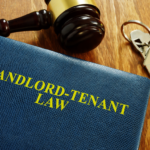What Is the Rent Stabilization Program (L.A. County)
The Rent Stabilization and Tenant Protections Ordinance (RSTPO) together with the Mobilehome Rent Stabilization and Mobilehome Owner Protections Ordinance (MRSMOPO) are laws that apply in unincorporated areas of L.A. County. Their purpose: to limit how much rent can rise, extend eviction protections, and provide recourse for tenants and mobilehome space renters. (LA County Consumer Affairs)
Key Features
- Maximum Allowable Rent Increases
- Rent increases are tied to changes in the Consumer Price Index (CPI).
- As of January 1, 2024, units under the program faced a cap of 4% for that year.
- Starting January 1, 2025, rent increases for “fully covered rental units” under RSTPO are limited to 60% of the year-over-year CPI change (ending in September), with a maximum of 3%.
- Special Categories: Small Landlords & Luxury Units
- Small Property Landlords may add an extra 1% increase (so up to 4% total). Qualifying landlords are ones who own/benefit from one property with ≤10 rental units, or up to three properties combined totaling ≤10 units. Also must have received a homeowner’s property tax exemption on that property.
- Luxury units can have an additional 2% above the base maximum increase, but cannot exceed 5% total. Luxury units are items like smaller units (2 bedrooms or less), in large buildings (25+ units), and with high rent (at least $4,000/month as of Sept 2018).
- Which Units Are Covered & What Protections Apply
- Many “residential units” in unincorporated areas are covered (including single-family homes & condos in many cases), particularly if their certificate of occupancy was issued on or before certain dates.
- Mobilehome spaces are also subject to protections under the MRSMOPO.
- Some units are fully covered (rent controls + eviction protections), others may be partially covered (eviction protections only), depending on their characteristics.
- Eviction (“Just Cause”) Protections
- Tenants in units covered by RSTPO can’t be evicted unless there is a “just cause” reason. These include:
- At-fault reasons (e.g. failure to pay rent, violation of lease, nuisance, illegal use)
- No-fault reasons (e.g. landlord or family member moving in, withdrawing the unit from the rental market, or legal/governmental orders). Some no-fault evictions may require relocation assistance.
- Tenants in units covered by RSTPO can’t be evicted unless there is a “just cause” reason. These include:
- New Disability-Related Protections
- If a tenant with a permanent physical disability related to mobility lives in a fully covered unit, they may request to be relocated—within the same property—to an “accessible” rental unit if certain conditions are met.
- Rent Registry & Oversight
- L.A. County requires registration of rental units (owners register and pay annual fees).
- There is a Rental Housing Oversight Commission (RHOC) which handles appeals (e.g. concerning rent increase disputes or fair return claims).
Why It Matters
- Helps limit how much landlords can raise rent, making housing more predictable for tenants.
- Offers protections against undue eviction, especially important for people who live in older units or mobilehome parks.
- Ensures units remain habitable, with a mechanism for tenants to seek adjustments if landlords exceed limit or do not maintain services.
- Special rules support smaller landlords (giving them a slightly higher increase) and help ensure that certain high-cost luxury units are treated differently but still under oversight.






